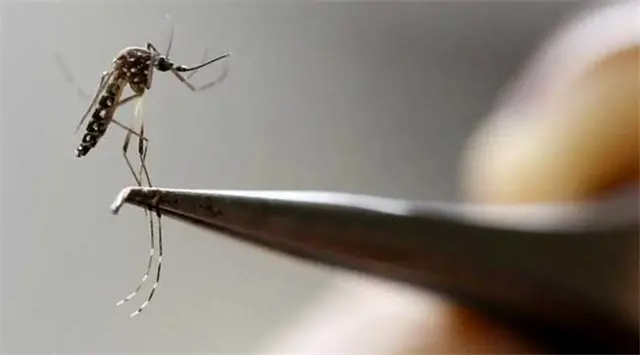Australian authorities are undertaking a mass mosquito eradication program in the country's north after a man was tested positive for the Zika virus after returning from South America.
The Asia-Pacific has been on high alert for the mosquito-borne virus, currently found in epidemic proportions in the Americans, following the declaration of a global emergency by the World Health Organization (WHO) in early February.
Though Australian authorities have been concerned the virus could travel across the Torres Strait, infected travellers returning with the Zika virus into the northern tropical region where the carrying mosquito Aedes aegypti is endemic and would most likely trigger outbreaks.
Queensland state Health Minister Cameron Dick told the state parliament on Thursday local authorities are undertaking a "vector control program" after the state's eighth case was detected in the central Queensland town of Rockhampton where the virus carrying mosquito had been found.
The virus hasn't been found in local mosquitoes, yet, however a small number could be infected after the man, who tested positive for Zika after recently returning from South America, had stayed at a hotel in the area where Aedes aegypti had been breeding.
"This is why we're undertaking urgent vector control in conjunction with the local government," Dick said.
"This is designed to help contain the mosquito and reduce the likelihood of a local outbreak."
Health officials are also door knocking nearby homes to make contact with any pregnant women after the WHO declaration cited a "strongly suspected" link between Zika infection and microcephaly, a condition marked by abnormally small head size that can result in developmental problems. Australian authorities continually advise pregnant women to refrain from travelling to areas where Zika transmission is present.
Dick said patients who are undergoing dengue fever testing would also be automatically tested for Zika as both diseases, which have similar symptoms, are carried by the same mosquito.
"Testing for both diseases at the same time will also potentially give us a headstart on identifying any local outbreak of Zika virus," Dick said.
The latest detection brings the state's tally to eight this year, and 18th since 2014 though no local transmission has occurred. Seven cases have been found in New South Wales state to the south.
Though the WHO have declared the Zika virus to be a global epidemic, vaccine manufacturers have said a vaccine for wide-scale public use is months, if not years away.
Current efforts to combat Zika are focused on protecting people from being bitten and on eradicating mosquitoes, a tough task for many parts of the poverty stricken Pacific islands that have been saving water from the El Nino enforced drought, inadvertently providing a breeding ground for the disease spreading insect.
Australian authorities are concerned the virus could then travel across the Torres Strait into the north of Australia. However they stress current biosecurity controls are working, as an outbreak is only likely to occur from returned travellers and not travelling mosquitoes. Enditem
 简体中文
简体中文

